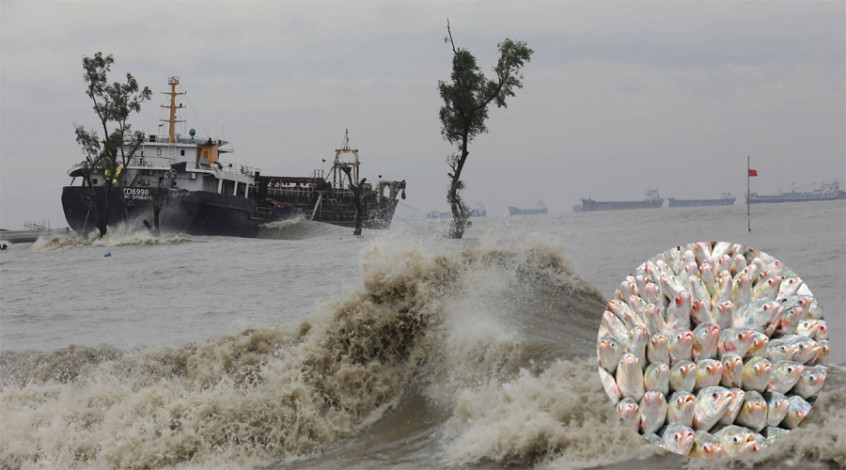
Photo: Collected
Hilsa experts said that although cyclone Sitrang has
caused extensive damage to the coastal area, it has created a safe environment
for fish to breed. Increased the possibility of hilsa production.
According to experts, Sitrang has created a 'favorable'
environment for hilsa breeding. As a result, hatching and production are now
likely to increase.
Bangladesh River Research Institute (BFRI) chief scientific
officer Anisur Rahman said, due to heavy rains, the quality of water has
changed for the better. As a result, an environment suitable for egg laying has
been created, due to which the hilsa is laying a lot of eggs.
The hilsa researcher said the 22-day ban from October 7 will
end on October 28, after which the rate of egg-laying can be truly determined.
However, it can be said that because the fish can grow in
this favourable environment, the quality and quantity of eggs will increase.
He said there were no fishermen and boats in the river and estuary during the three days before and after Sitrang due to the cyclone, which also created an unhindered environment for hilsa fishes to lay eggs.
Barisal Divisional Fisheries Officer Anisur Rahman Talukder
said most of the fish laid eggs this time due to the favorable environment. As
a result, we think that the rate of egg-laying will be 51.8 percent more than
last year.
"But now the challenge is to allow the eggs to be
hatched and turned into big fishes. This time, due to the strict operation, the
fishermen could hardly go into the river. As a result, the production target of
hilsa is more than six lakh metric tonnes," he added.
Barisal Fisheries Officer, Ilish Bimal Chandra Das, said
most of the hilsa fish have already laid eggs. Eggs were also found after
examining the captured fish.
"The quality of eggs is also good, I think more fish
are going to lay eggs than before," he said.
A total of 22 bans on catching, selling, storing, and
transporting hilsa have been implemented since October 7 in 37 districts and
six sanctuaries including the coast.
At this time, around the full moon and new moon, a large
number of hilsa fish spawn, which plays a major role in hilsa production.
Source:
Online/SZK
Comment Now